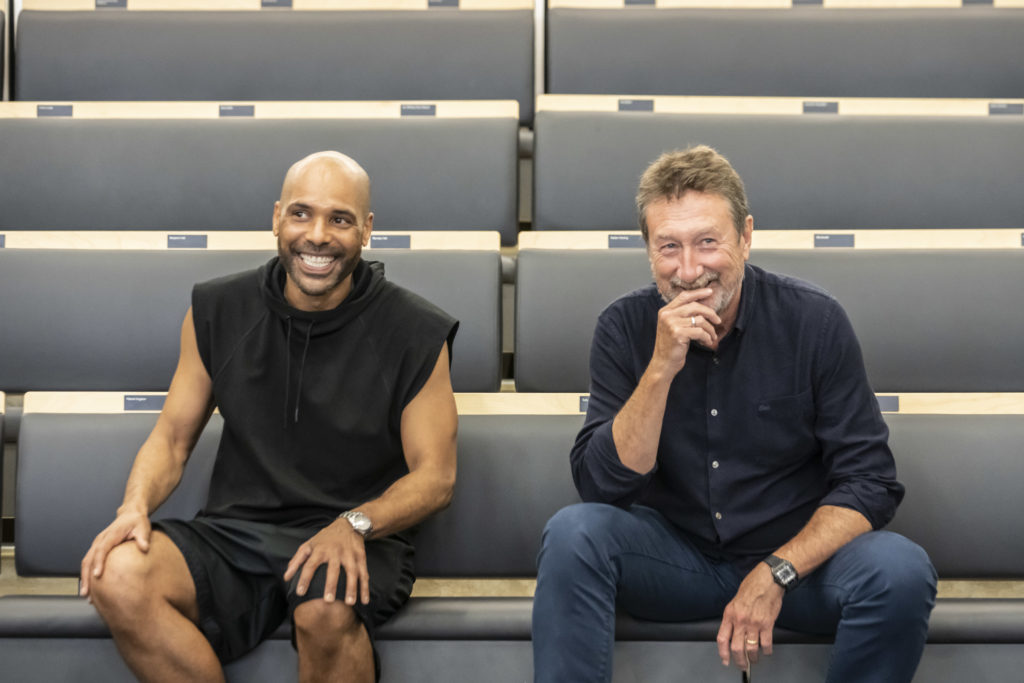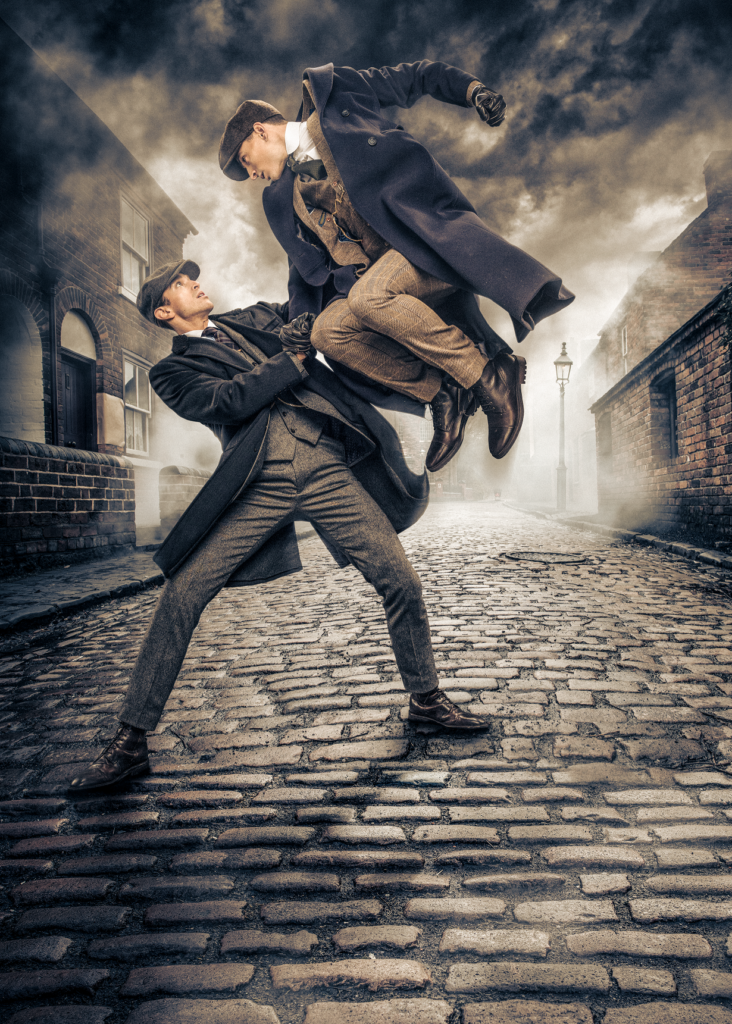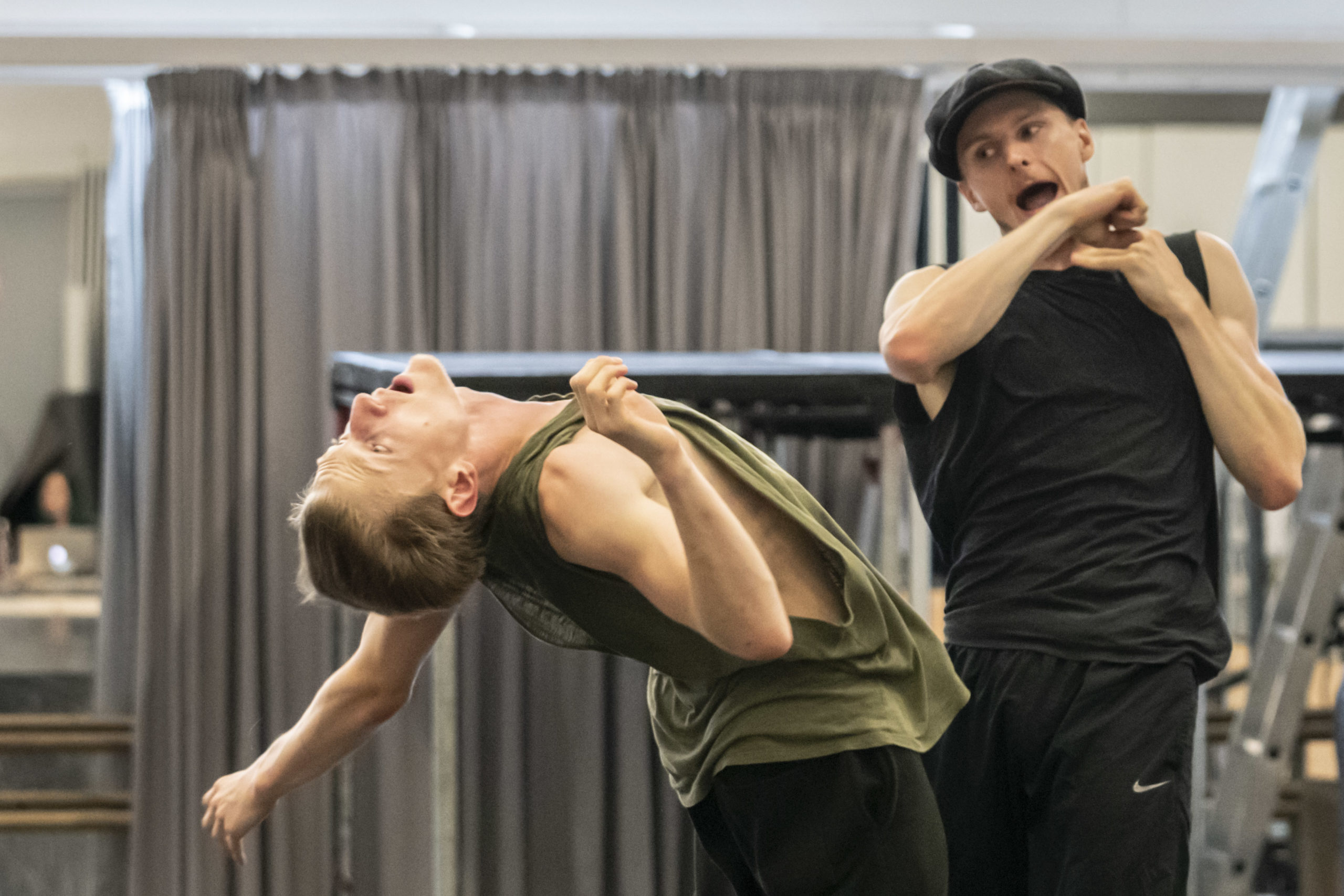Benoit Swan Pouffer on Making a “Peaky Blinders” Ballet at Rambert
Since taking the reins as artistic director of Rambert in 2018, Benoit Swan Pouffer has breathed new life into the 96-year-old London-based company. Collaborating with creatives from outside of the contemporary-dance bubble, Pouffer’s Rambert endeavors to break down barriers between popular and “high” culture.
In one of his most daring moves to date, the former Cedar Lake Contemporary Ballet director has teamed up with Steven Knight, CBE, the creator, writer and executive producer of the multi-award-winning BBC drama “Peaky Blinders,” to create a new production based on the TV series. Ahead of the premiere, we caught up with Pouffer to find out more about how he’s gone about bringing the world of the cutthroat, early-20th-century gang from Birmingham, England, to the stage.
Where did the idea to make Peaky Blinders: The Redemption of Thomas Shelby come from?
We’ve been cultivating a relationship with Steven Knight, the show’s creator, for quite some time. I choreographed a dance sequence for the series. After that, Rambert was invited to perform a 10-minute piece as part of The Legitimate Peaky Blinders Festival in Birmingham in 2019. Steven’s a dance lover and thinks that movement can express things that cannot be shown through film.

What came first in the creation process, the movement or the story?
I’m a storyteller, so it was very important for me for this piece to start with the narrative. Steven wrote us a storyline that will help audiences to understand the dilemmas, struggles and drive of these characters. It starts during World War I, which isn’t depicted in the series. It will explore life in the trenches and how that affected people. There’s also threads dealing with love and deception. The series is very violent. Our show will be about explaining how and why the characters got to this point. What makes a Peaky Blinder? What are their intentions? What drives them?

Do people need to have seen “Peaky Blinders” to enjoy the stage show?
No. We will obviously pay tribute to the series—all of the characters that we all cherish will be there, and you will recognize them onstage—but the performance will be accessible for everyone.
As you mentioned, there is a lot of difficult subject matter in the “Peaky Blinders”series: war, drug abuse, sexual assault and gang violence, to name a few. How are you approaching these sensitive topics?
We are not the first people to be addressing war, drugs or deception onstage. I think it’s important not to shy away from these themes and, through movement, try to understand what they do to people’s bodies and minds.
What can we expect from the music?
Roman GianArthur, our composer and orchestrator, has used very well-known tracks that people will recognize from the series, and also created amazing new compositions. There’s even a brand-new song from Laura Mvula that’s part of the score. Music is what helps me drive through the production. It’s like the gas that keeps it moving.
The piece will premiere in Birmingham, the home of the Peaky Blinders. While this may seem obvious, it feels quite a big step towards the decentralization of the UK and bursting the London culture bubble. Was this a consideration for you?
We all love London, but there are amazing cities across the UK with strong, unique cultural scenes. One of our key missions at Rambert is to cultivate new audiences. I think that a lot of people who have never watched dance before will come to see this show. It’s our responsibility to make sure that, once they sit down in their seat, they want to know more and see more dance in the future. Peaky Blinders is Rambert’s first branded show, and the company’s biggest endeavor to date.
Under your leadership, Rambert has been no stranger to mixing contemporary dance with popular culture—for example, inviting Marion Motin, who is known for working with Christine and the Queens and Dua Lipa, to create Rouge back in 2019.
At the end of the day, good dance is good dance. I don’t want to limit Rambert to one style. I was a repertoire dancer; that was the highlight of my career. Changing skins—both costumes and ways of moving—is what makes this job fun. Now, the new, young generation of creatives don’t just do one thing. They edit, they shoot, they write. So why can’t Rambert, which I see as the flagship dance company of the UK, invite people that deserve a chance and are relevant? It’s our responsibility to showcase what is out there.
Rambert has rubbed shoulders not only with popular culture but also with visual art (for a re-creation of Trisha Brown’s Set and Reset at the Tate Modern earlier this year) and 3-D animation (for Sharon Eyal’s Aisha and Abhaya in 2020). What other disciplines outside of dance would you like to collaborate with?
I’d like to do more with film. That was a silver lining to COVID. Of course the pandemic was terrible, but we did great things at Rambert: We developed online classes, a podcast and various livestream performances. It was a wonderful period artistically for the company. Wim Vandekeybus, Jo Strømgren, and Imre and Marne van Opstal created works specifically for film, and Marion Motin came back to reimagine Rouge for the camera. Our building became a movie studio.
What else has changed at Rambert since Dance Magazine last spoke to you?
We now know that everything can be taken away from us. It’s a blessing to be able to do what we love every day. That may sound cheesy, but it’s true. The pandemic was a big wake-up call that made us realize how crucial art is. It feeds our souls, challenges us and keeps us alive.





